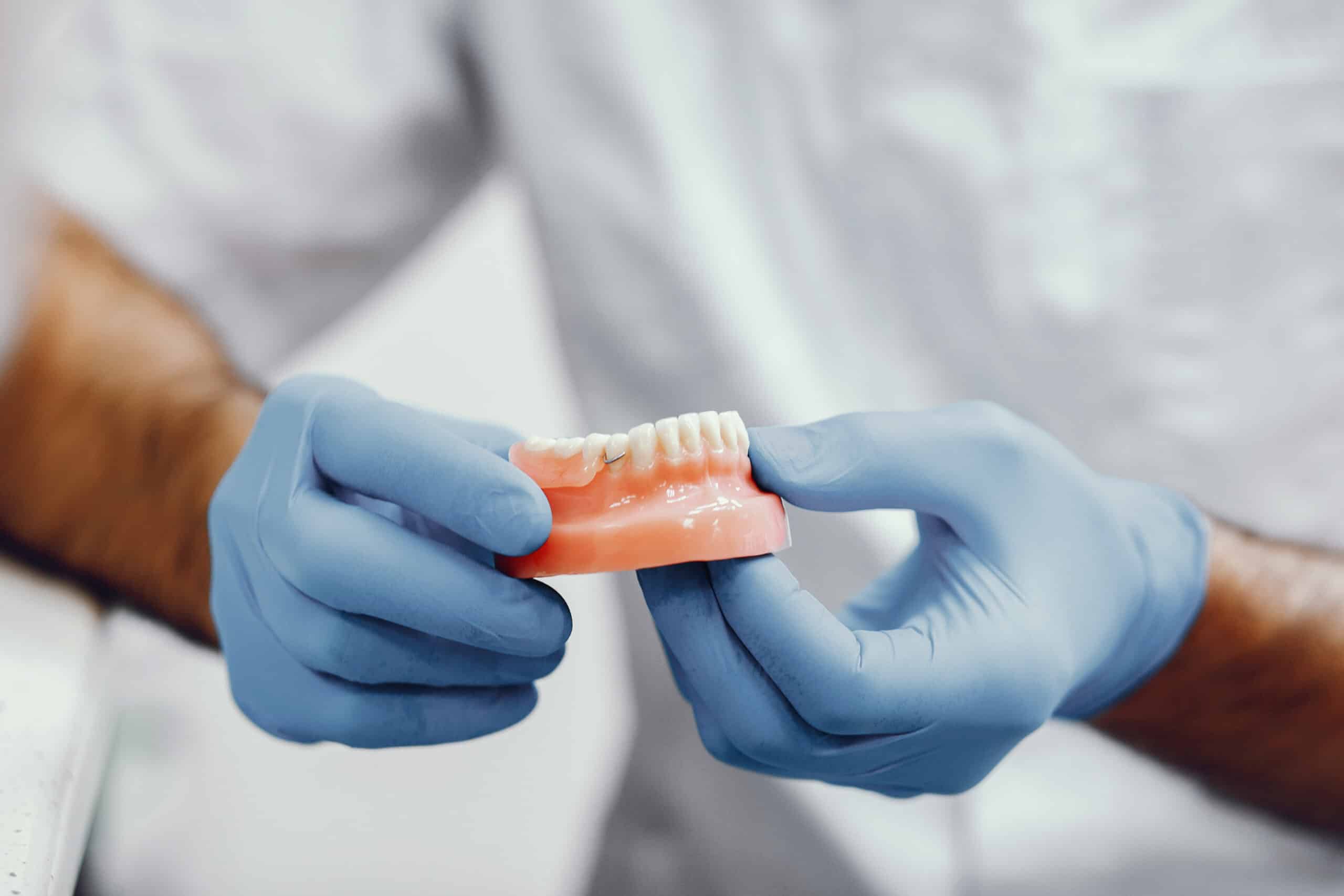This is the moment you’ve been dreading: Getting Dentures. The day you find out you need dentures can feel like a punch in the gut. After the shock wears off, the worries set in. How will you eat? Talk? Smile? It's normal to feel anxious about such a big life change. But don't despair. With today's modern dentistry, living with dentures is much easier than you imagine. With a little preparation and guidance from your dentist, you can adapt seamlessly to your new smile. This blog provides tips from dentists for managing complete or partial dentures. You'll learn strategies for eating, cleaning, sleeping, and more to maximize comfort and confidence.
Tips To Live With Dentures
Conquer The Food Frontier
One of the top concerns of new denture wearers is eating. Suddenly, you have to relearn something you've done daily for decades. It seems daunting, but with a little trial and error, you'll be munching comfortably in no time.
In the beginning, take it slow with soft, easy-to-chew foods like scrambled eggs, yogurt, well-cooked veggies, and pasta. Cut food into small pieces and chew slowly using both sides of your mouth evenly. As you get used to your dentures, gradually work in crunchier, chewier items.
Avoid slick foods like corn on the cob or anything with small seeds that can slip under your dentures. Skip extremely hot, sticky, hard, or crunchy foods at first. Your dentist can recommend denture adhesives to keep your teeth firmly in place for eating. Some over-the-counter products provide a strong hold when you need extra security.
Stay True To Your Oral Hygiene
Just because your teeth come out at night doesn't give you a pass on oral hygiene! Brushing and cleaning your dentures daily keeps away stains and harmful bacteria.
Use a soft bristle brush and non-abrasive denture cleaner. Avoid stiff brushes and regular toothpaste, which can scratch denture surfaces.
Clean over a sink filled with water or a towel if you drop them. Hand and dish soap can also be used for a thorough cleaning - just avoid abrasive dishwasher detergents.
Always remove and rinse dentures after eating. Leaving food particles behind raises your risk for yeast and bacteria overgrowth in the mouth. Nightly soaks in sterilizing solutions like Polident remove accumulation and kill germs. See your dentist regularly for professional cleanings, too. Over time, plaque buildup and stubborn stains can develop, requiring a deeper cleaning.
The Keys To Talking And Eating Naturally
One tell-tale sign of dentures is a slurred or lisping speech. With these tips, you can sound natural when talking and eating:
- Speak, chew, and swallow slowly while your tongue and cheeks get used to the dentures.
- Practice tongue and lip exercises to strengthen your oral muscles.
- Read aloud for 10-15 minutes daily to train your tongue and lips.
- Ask your dentist about getting personalized dentures contoured to fit your mouth. This improves comfort and speech.
- Arrange follow-up appointments with your dentist to adjust the fit until talking feels natural.
With patience and daily practice, your speaking patterns will return to normal. Small, consistent adjustments are key to long-term success.
Sleep Smoothly Through The Night
To avoid discomfort while sleeping:
- Clean dentures thoroughly before bed to prevent bacterial or yeast growth overnight.
- Apply a small amount of denture adhesive to the upper plate if it tends to become dislodged at night.
- Remove dentures at least 8 hours a day to give your gums a rest from pressure.
- Keep a glass of water by the bedside in case dentures cause dry mouth while sleeping.
Getting dentures can feel like a major life change, but with modern dental treatments, you can quickly adapt to your new smile. Focus on soft, easy-to-chew foods at first, then gradually reintroduce more textures as your oral muscles strengthen. Maintain meticulous oral hygiene by brushing dentures daily and soaking them in a cleansing solution at night. Schedule regular dental visits for professional cleanings and adjustments to improve fit and comfort. Patience and daily practice are key for relearning how to talk, chew, and swallow naturally again. Adjustments to the dentures and oral muscle exercises will help restore normal speech patterns. To sleep comfortably, thoroughly clean dentures before bed and give your gums an 8-hour rest from wearing them daily. Most importantly, stay positive during this transition. Getting dentures doesn't change who you are.


